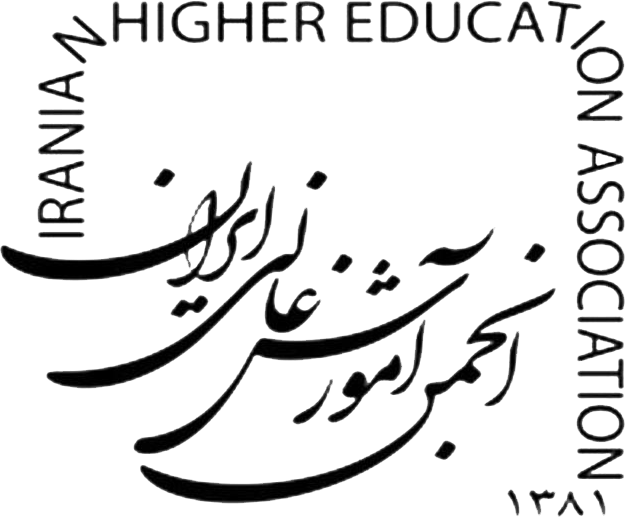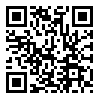Volume 16, Issue 3 (2024)
ihej 2024, 16(3): 91-112 |
Back to browse issues page
Download citation:
BibTeX | RIS | EndNote | Medlars | ProCite | Reference Manager | RefWorks
Send citation to:



BibTeX | RIS | EndNote | Medlars | ProCite | Reference Manager | RefWorks
Send citation to:
NoghsanMohammadi M R, Khanizadeh M A, AmirAzodi H. Challenges and Vulnerabilities of the Urban Planning Education System: A Look at the Current Status and Proposed Solutions. ihej 2024; 16 (3) :91-112
URL: http://ihej.ir/article-1-2080-en.html
URL: http://ihej.ir/article-1-2080-en.html
1- PhD Student in Urban Planning, Faculty of Art and Architecture, Yazd University, Yazd, Iran. , ma1985kha@gmail.com
2- PhD Student in Urban Planning, Faculty of Art and Architecture, Yazd University, Yazd, Iran.
2- PhD Student in Urban Planning, Faculty of Art and Architecture, Yazd University, Yazd, Iran.
Abstract: (1641 Views)
Objective:The main objective of this study is to identify and analyze the structural, content-related, and human resource challenges within the urban planning education system in Iran. It also aims to explore the consequences of these challenges on the quality of education and to propose practical strategies to bridge the gap between academic training and real urban needs.
Method:This research adopts Grounded Theory as a qualitative approach to explore the complex and context-specific nature of educational challenges. Data were gathered through semi-structured interviews with university professors, students, urban planning experts, and municipal managers. Purposeful sampling was employed to select informed participants, and the data were analyzed using open, axial, and selective coding. The choice of Grounded Theory was based on the study’s exploratory nature, its focus on generating a native theory, and its emphasis on capturing participants' lived experiences.
Results: The analysis revealed that challenges in the urban planning education system in Iran fall into three major categories:1- Structural Challenges – including incoherent policymaking, inadequate educational infrastructure, and weak institutional linkages between academia and practice. 2- Content-related Challenges – such as outdated curricula, overemphasis on theoretical knowledge, and lack of attention to contemporary issues like smart cities and spatial justice. 3- Human Resource Challenges – including shortage of qualified faculty, low student engagement, and insufficient incentives to attract and retain top talent. These interconnected issues have contributed to a significant disconnect between educational outputs and the professional and societal needs of urban planning in Iran.
Conclusion: To overcome the identified challenges, the study recommends revising the overall educational framework, modernizing course content, enhancing cooperation between universities and urban governance bodies, and promoting locally grounded and socially responsive education. These strategies are essential to develop a more responsive and effective urban planning education system that aligns with Iran’s evolving urban realities.
Method:This research adopts Grounded Theory as a qualitative approach to explore the complex and context-specific nature of educational challenges. Data were gathered through semi-structured interviews with university professors, students, urban planning experts, and municipal managers. Purposeful sampling was employed to select informed participants, and the data were analyzed using open, axial, and selective coding. The choice of Grounded Theory was based on the study’s exploratory nature, its focus on generating a native theory, and its emphasis on capturing participants' lived experiences.
Results: The analysis revealed that challenges in the urban planning education system in Iran fall into three major categories:1- Structural Challenges – including incoherent policymaking, inadequate educational infrastructure, and weak institutional linkages between academia and practice. 2- Content-related Challenges – such as outdated curricula, overemphasis on theoretical knowledge, and lack of attention to contemporary issues like smart cities and spatial justice. 3- Human Resource Challenges – including shortage of qualified faculty, low student engagement, and insufficient incentives to attract and retain top talent. These interconnected issues have contributed to a significant disconnect between educational outputs and the professional and societal needs of urban planning in Iran.
Conclusion: To overcome the identified challenges, the study recommends revising the overall educational framework, modernizing course content, enhancing cooperation between universities and urban governance bodies, and promoting locally grounded and socially responsive education. These strategies are essential to develop a more responsive and effective urban planning education system that aligns with Iran’s evolving urban realities.
Send email to the article author
| Rights and permissions | |
 |
This work is licensed under a Creative Commons Attribution-NonCommercial 4.0 International License. |





